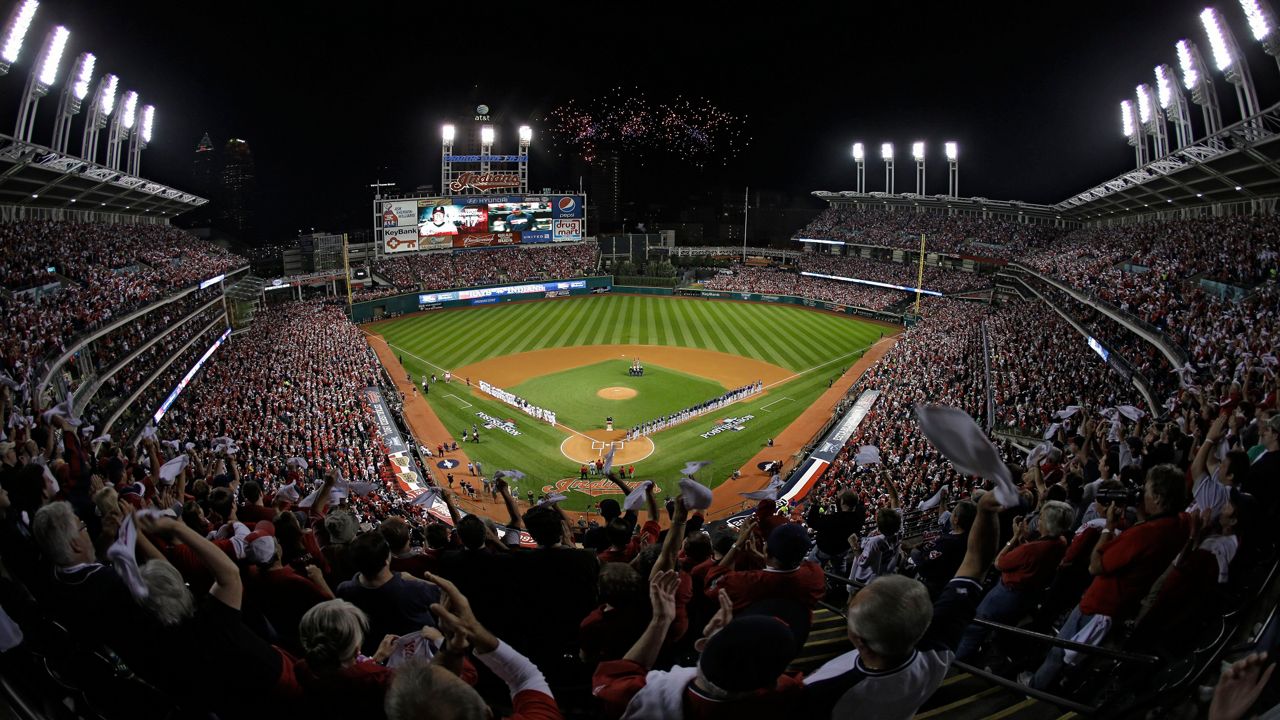CLEVELAND — Members of the Cleveland City Council Finance Committee had their first opportunity to discuss and question a proposed agreement between the Indians, the city and Cuyahoga County to keep the team at Progressive Field through at least 2036.
The lease agreement, which was hatched in August, would involve using $19 million annually in public funds over the next 15 years to remodel and upkeep Progressive Field. The lease agreement could extend all the way to 2046 if certain conditions are met.
The city and county combined are responsible for providing $17 million annually in public funds, with the state adding $2 million a year.
The Finance Committee reviewed the agreement with Ken Silliman, chair of the Gateway Economic Development Corporation. While in the audience, representatives from the Indians did not discuss the proposal with members.
Cleveland City Council President Kevin Kelley said there would be future discussions with the Indians invited back to answer questions directly.
A number of members of Cleveland City Council questioned why millions were going to renovate Progressive Field as the city encounters one of the highest poverty rates in the U.S. The U.S. Census says Cleveland has a poverty rate of 32.7%.
“We’re going to be asked again about a major funding project for a sporting venue so I am going to be asking some pointed questions when the Indians come to the table… what have you done?” said City Councilman Michael Polensek, who was on council when Progressive Field was finished in 1994.
Silliman defended the proposal to council members, noting that several other venues of a similar age have been rebuilt at higher costs. He noted that the Atlanta Braves replaced Turner Field after it was open for 20 years. Silliman also said that the Texas Rangers opened their new stadium last year, which replaced a facility that opened the same year as Progressive Field.
Those new stadiums, he said, cost nearly $1 billion. The proposal calls for $435 million in renovations and upkeep to Progressive Field.
“The investment in making an already good ballpark better and to continue to be competitive and to avoid that new expenditure, it is a good investment,” he told the Finance Committee.
Silliman acknowledged that the upgrades would give the Indians the latest in premium seating options and other amenities. Those amenities, however, won’t be enjoyed by the community at large, Councilman Brian Kazy noted.
“This one is going to be a hard sell,” Kazy said. “I understand the economic impact, but when you come back to the table, please come back with two aspects. One, the team’s financial benefits from this. And two, the community’s financial benefits from this.”
It is not known what might happen if the city or county fails to pass their respective portions of the agreement. The Indians would be free to relocate after the 2023 season if a lease agreement is not reached.



